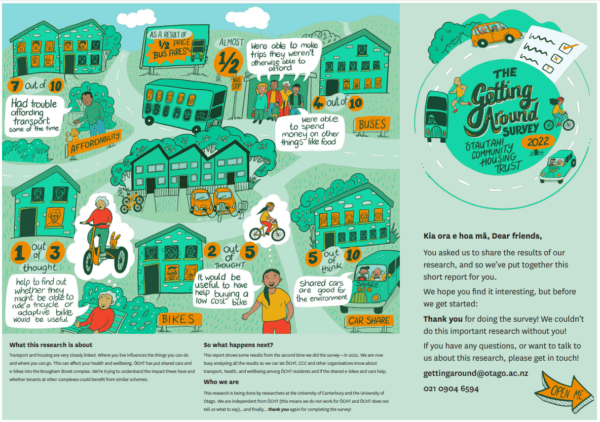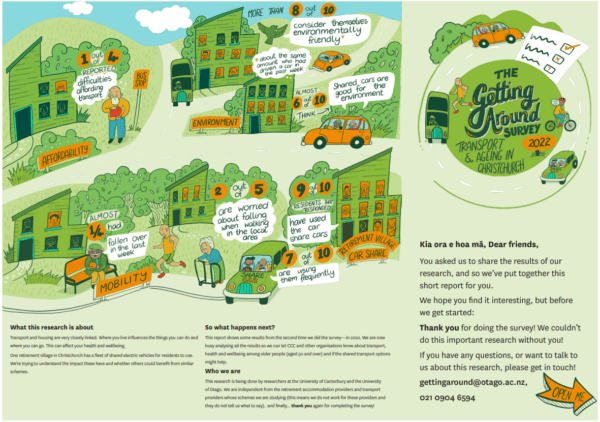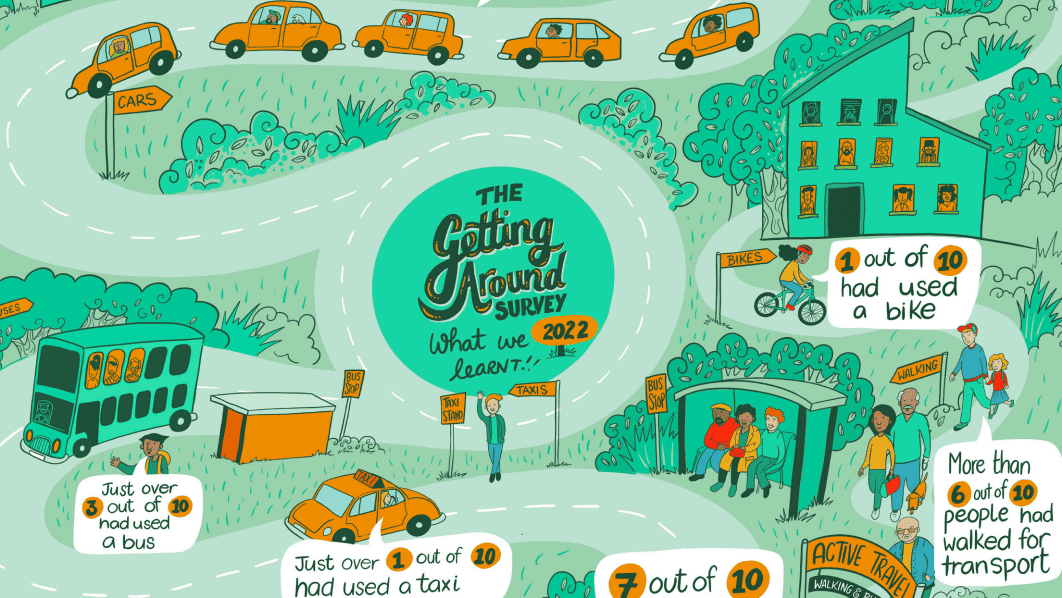ACTIVATION: The Getting Around Surveys 2022
22 January 2024
Illustrated summaries of two research surveys provide accessible feedback to participants in the ACTIVATION project, a major research initiative jointly funded by two National Science Challenges – Healthier Lives and Ageing Well.
Among other things, ACTIVATION is investigating the concept of shared mobility – having shared access to a vehicle or bicycle – in two residential communities in Ōtautahi Christchurch. To our knowledge, it is the first research study in New Zealand to examine how to incentivise shared travel in specific communities.
Residents of the Ōtautahi Community Housing Trust’s Brougham Street development, a 90-unit social housing complex, were provided with access to shared cars and e-bikes. A baseline survey of residents, conducted in 2021 before the shared vehicle scheme was introduced, produced stark findings. Lack of access to transport prevented the majority of residents from participating in activities that are fundamental for health and wellbeing, and which most New Zealanders take for granted. Over the previous 12 months, 7 out of 10 residents had been unable, at least occasionally, to attend a medical appointment, do their grocery shopping, or visit friends or family.

A follow up survey conducted in 2022 found that the affordability of transport remained a barrier for many people in this low-income community, with walking being the most common form of transport in the week prior to the survey. However, the temporary introduction of half-price bus fares in March 2022 (as part of the Government’s package of measures to alleviate the cost-of-living crisis) had allowed almost half of the residents to make trips that they otherwise couldn’t afford, and the money saved on bus fares enabled some residents to buy other essential items, like food.
Environment Canterbury requested analysis of the data showing that the affordability of discounted bus fares is critically important in enabling people on low incomes to make essential journeys, and ultimately they continued reduced bus fares for community card holders.

Residents of Park Lane, an Arvida Group life care village for older people in Ōtautahi Christchurch, also have access to a fleet of shared electric vehicles. A survey of residents in 2022 found that a quarter of residents had trouble affording transport, with most making use of the shared vehicles and 7 out of 10 residents using them frequently. Eighty percent of residents also used active transport options, such as walking or biking, to get around. This highlights the need for safe active transport infrastructure and access to affordable vehicle schemes.
The illustrated summaries are an innovative way of providing feedback to the people who took part in these surveys. Using graphic design to make the information easy to understand honours the participation of Brougham Street and Park Lane residents in the research.
Survey results
- The Getting Around survey 2022 – Ōtautahi Community Housing Trust OURarchive [PDF]


